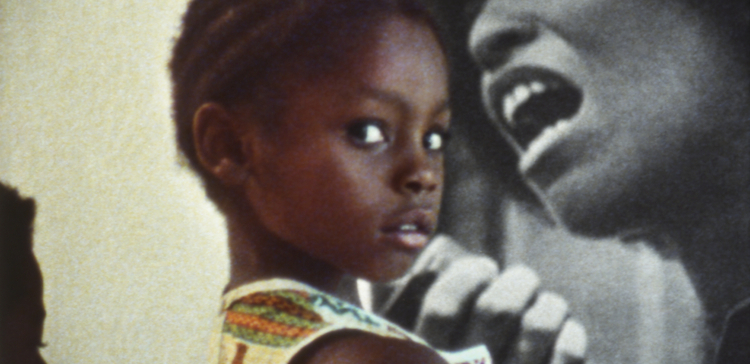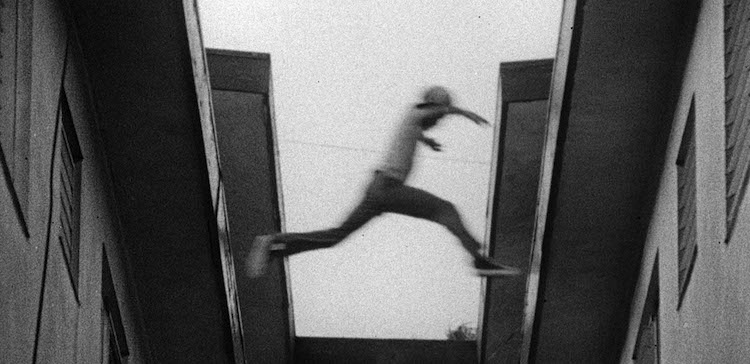
Ashes & Embers (1982)
In the late 1960s, in the aftermath of the Watts Uprising and against the backdrop of the continuing Civil Rights Movement and the escalating Vietnam War, a group of African and African-American students entered the UCLA School of Theater, Film and Television, as part of an Ethno-Communications initiative designed to be responsive to communities of color (also including Asian, Chicano and Native American communities). Now referred to as the "L.A. Rebellion," these mostly unheralded artists created a unique cinematic landscape, as—over the course of two decades—students arrived, mentored one another and passed the torch to the next group.
Some aspects of the story have been told before, in articles and in panel discussions, and at retrospective screenings of key films. Now, UCLA Film & Television Archive has undertaken its L.A. Rebellion initiative to help illuminate previously unknown aspects of the story, the artists and the work, and facilitate a greater understanding of the whole.
The Archive’s initiative began with a desire to participate in the Getty Foundation funded Pacific Standard Time exhibition of post World War II Art in Los Angeles. Years later, dozens of filmmakers have been identified as part of the L.A. Rebellion movement and the initiative has grown into a massive effort by all departments of the Archive to bring to light the contributions of these first generations of Black UCLA film students.
Beyond the films themselves, what makes the L.A. Rebellion movement a discovery worthy of a place in film history is the vitality of its filmmakers, their utopian vision of a better society, their sensitivity to children and gender issues, their willingness to question any and all received wisdom, their identification with the liberation movements in the Third World, and their expression of Black pride and dignity.

Killer of Sheep (1977)
Endeavors of the L.A. Rebellion initiative
-
The groundbreaking Los Angeles film exhibition, L.A. Rebellion: Creating a New Black Cinema, which screened October 7 – December 17, 2011
-
The publication of an exhibition catalog (PDF)
-
A multi-disciplinary symposium that featured scholars from around the country on November 12, 2011
-
A film exhibition tour that visited major cities throughout North America from September 2012 – November 2013
-
Providing online access to early student works by the filmmakers
-
Editing a book of critical essays published by UC Press in 2015
-
A DVD set of 25 short films that represent a broad selection of L.A. Rebellion filmmakers
-
Collecting, cataloging, restoring and protecting a wide variety of film, video and digital works
-
Recording the stories, experiences and interpretations of L.A. Rebellion by the filmmakers and others through an oral history project
-
Discovering, preserving and restoring additional L.A. Rebellion works
-
Loaning prints of L.A. Rebellion works to cinematheques, museums and other venues around the globe
L.A. Rebellion: Creating a New Black Cinema is part of Pacific Standard Time: Art in L.A. 1945-1980. This unprecedented collaboration, initiated by the Getty, brings together more than 60 cultural institutions from across Southern California for six months beginning October 2011 to tell the story of the birth of the L.A. art scene.

UCLA Film & Television Archive is grateful to its generous sponsors who have contributed to making L.A. Rebellion: Creating a New Black Cinema possible, including The Getty Foundation, The Andy Warhol Foundation for the Visual Arts, the National Endowment for the Arts, the California Council for the Humanities and The Academy of Motion Picture Arts and Sciences.

Thanks to: Getty Research Institute; Ann Philbin, Hammer Museum; Mayme A. Clayton Library & Museum; Black Film Center/Archive, Indiana University; Charles Silver, Museum of Modern Art; Ayuko Babu, Pan African Film Festival; Grover Crisp, Sony Pictures Entertainment; Debra Zimmerman, Women Make Movies; Dennis Doros, Amy Heller, Milestone Films; Harris Tulchin; Larry Dodge; Cauleen Smith and the filmmakers of the L.A. Rebellion.






 Mobile Navigation
Mobile Navigation

